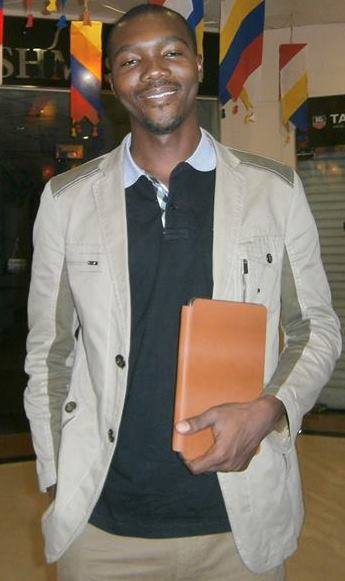In October, 2015, Generation Democracy hosted its first event outside the U.S. in Dakar, Senegal and brought together 45 young leaders from the West African countries of Burkina Faso, Cote d’Ivoire, Mali, Mauritania, Niger, Nigeria, and Senegal for a collaborative conference and advocacy skills workshop.
Generation Democracy, IRI’s youth initiative, is a global coalition of young people and more than 200 youth organizations in 67 countries around the globe that engages, empowers, and connects youth across borders to share their ideas, experiences, and best practices on youth political participation in order to cultivate the world’s next generation of democratic leaders. A primary goal of Generation Democracy is to highlight the voices of our members, who are working tirelessly to expand the political rights of young people around the globe. One of our amazing members is Mr. Cheick Traore, a young man who is heavily involved in Burkina Faso’s civil society and has dedicated his life to, as he puts it, “advocating for youth to be taken into account at every level.”
Please read the interview below as the first entry to our new campaign to tell the stories of our members, “Meet the Future.”
What is the name of the youth-focused organization that you are a part of?
Ans: I am a member of two civil society organizations. I am the President of the Youth Association for the Sustainable Development of Burkina Faso (Association des Jeunes pour le Développement Durable au Burkina Faso – AJDD/BF) and I am the national coordinator of the Youth Network for Water, Sanitation and Sustainable Development (Réseau des Jeunes pour l’Eau, l’assainissement et le Développement Durable – RJEDD/BF)
What initiatives has your organization taken part in that you are most proud of?
Ans: Two main actions come to mind. Firstly, we mobilized youth (about 500) and authorities (Prime Minister and President of the National Council for Transition) to support the framework of the worldwide campaign “Action/2015” for ambitious sustainable development objectives to be adopted by the United Nations in September 2015. Secondly, actions promoting sanitation by fighting against dirty draining by training and supporting youth, which contributed to relieving and preventing sickness for about 100,000 people.
What is your vision for your country’s future?
Ans: My immediate ambition is to see the country out of the torment of poverty and ruled by good governance, with the participation of youth and women in sustainable development.
How can youth achieve that vision?
Ans: Youth’s contribution is at several levels: commitment to be proactive, working against the obstacles facing youth and [our leaders] effectively taking into account youth in decision making.
What is your initiative doing to achieve that vision?
Ans: One of our initiatives is to conduct a large campaign for youth to be effectively taken into account in decision making bodies. In this framework, we sensitize the youth to unite and work together through concrete actions. We, ourselves, lead by example through the projects I talked about in the above questions.
Why is bringing youth together from around the world important?
Ans: We share the same realities and we went through the same situations. Coordinated action is a strength that allows us to bring change. Experience sharing is very important in our common search.
How can youth change the world?
Ans: “Youth is similar to an atomic bomb,” said Thomas SANKARA. If youth strengthen their capacities through training, resolutely engaging with authorities through concrete development actions and benefiting from the confidence of their elders, this generation can change the world together.

Top